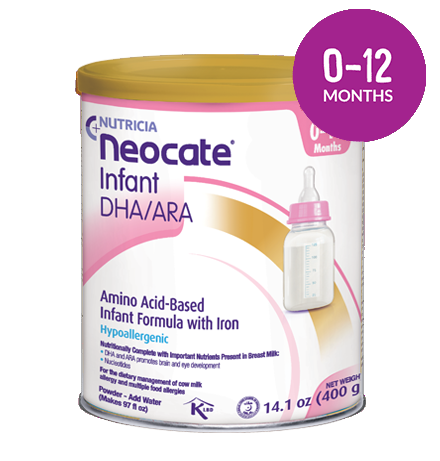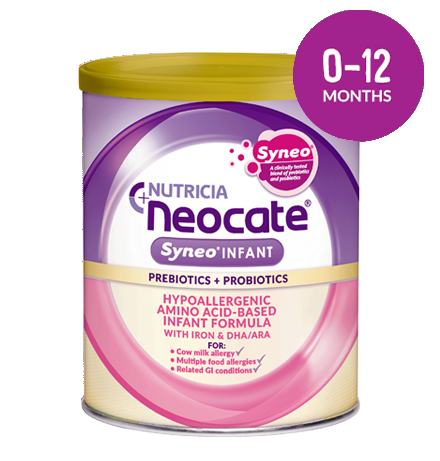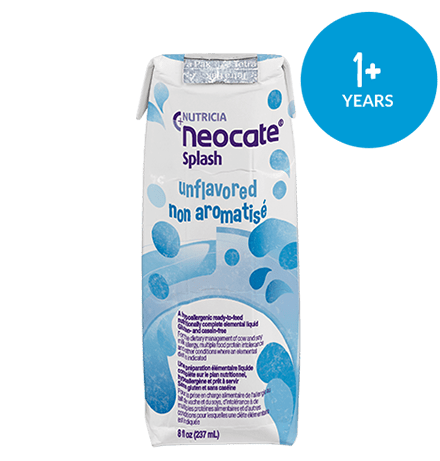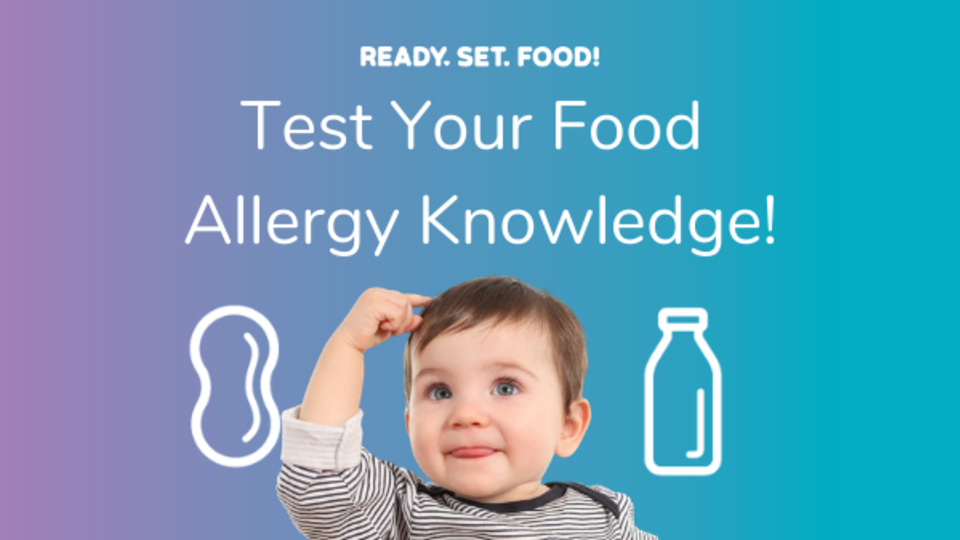food protein induced enterocolitis syndrome wiki
To review current knowledge and recent advances in food protein-induced enterocolitis syndrome FPIES. Symptoms of vomiting and bloody diarrhea can lead to dehydration andor shock after consumption of certain foods.

Food Protein Induced Enterocolitis Syndrome Fpies Symptoms Management Neocate
FPIES is a disease that typically affects infants and young children.
. Acute FPIES manifests within 1-4 hours after. Food protein-induced enterocolitis syndrome FPIES is a rare non-immunoglobulin E-mediated gastrointestinal food allergy primarily diagnosed in infancy but has also been reported in older children and adults. Food proteininduced enterocolitis syndrome FPIES is a nonIgE- cell-mediated food allergy of unknown prevalence and pathophysiology.
Food protein-induced enterocolitis syndrome is an allergic disease with expression predominantly in the GI tract. Symptoms of food protein-induced enterocolitis syndrome can vary from child to child and in severity. An increasing number of infants are diagnosed with food protein-induced enterocolitis syndrome FPIES a non-IgE-mediated food allergy.
Food protein-induced enterocolitis syndrome FPIES is a nonIgE-mediated food allergy that manifests with projectile repetitive emesis that can be followed by diarrhea and may be accompanied by lethargy hypotonia hypothermia hypotension and metabolic derangements. 1 2 This syndrome is typically characterized by profuse vomiting and lethargy occurring classically 14 hours after ingestion of the offending food. Food proteininduced enterocolitis syndrome FPIES is a nonIgEmediated food allergy with potential dehydration secondary to vomiting.
Differences exist regarding culprit foods and age of tolerance depending on the country of origin. Rice FPIES is associated with more severe reactions than other foods. Food proteininduced enterocolitis syndrome FPIES is a rare nonIgEmediated food allergy to protein mainly in cow milk CM that typically presents in early infancy.
Food protein-induced enterocolitis syndrome FPIES is an uncommon disorder characterized by an allergic reaction to food that affects the gastrointestinal system. These symptoms can lead to severe lethargy change in body temperature and blood pressure. Affected infants typically demonstrate gastrointestinal symptoms after hours after ingestion of.
FPIES or food protein induced enterocolitis syndrome is a condition that Ive been hearing about more and more lately. Food proteininduced enterocolitis syndrome FPIES is thought to be a nonIgE mediated food allergy syndrome. Unlike typical food allergies symptoms may not be.
It is not particularly well-known so I thought we could cover some of the basics in todays blog. Food protein-induced enterocolitis syndrome FPIES is a non-IgE-mediated food allergy with potential dehydration secondary to vomiting. Acute FPIES reactions typically present with delayed repetitive vomiting lethargy and pallor within 1 to 4 hours of food ingestion.
The term enterocolitis specially refers to inflammation of the small and large intestines. But if your child has a rare allergy called food protein-induced enterocolitis syndrome FPIES. Food Protein-Induced Enterocolitis Syndrome FPIES is a type of food allergy affecting the gastrointestinal GI tract.
When most kids have an allergic reaction to a food like peanut butter you see signs right away. We aimed at describing the characteristics of a French population of children with FPIES and define risk. Whats the most characteristic symptom.
FPIES is caused by an immune reaction triggered by common foods and is not an IgE-mediated food allergy. Enterocolitis is inflammation involving both the small intestine and the colon large intestine. Food protein-induced enterocolitis syndrome FPIES is a severe presentation of non-IgE-mediated food allergy affecting the gastrointestinal GI tract mainly in infants and young children.
FOOD PROTEIN INDUCED ENTEROCOLITIS SYNDROME FPIES FPIES typically affects children under the age of one year. We aimed at describing the characteristics of a French population of children with FPIES and define risk factors for failure. Food protein-induced enterocolitis syndrome FPIES is a severe presentation of non-IgE-mediated food allergy affecting the gastrointestinal GI tract mainly in infants and young children.
12 This syndrome is typically characterized by profuse vomiting and lethargy occurring classically 14 hours after ingestion of the offending food. Until now T-cell food-specific mechanisms have been hypothesized. Sixteen children 11M 5F affected by FPIES from cows milk wheat fruit rice and others experienced 25 acute episodes managed at our.
We aimed at describing the characteristics of a French population of children with FPIES and define. Differences exist regarding culprit foods and age of tolerance depending on the country of origin. Onset is typically during the first year of life.
Food protein-induced enterocolitis syndrome FPIES is a non-IgE-mediated food allergy that manifests with projectile repetitive emesis that can be followed by diarrhea and may be accompanied by lethargy hypotonia hypothermia hypotension and metabolic derangements. Classic symptoms of FPIES include profound vomiting diarrhea and dehydration. When a child with FPIES eats a trigger food whether it is milk rice oats or another food symptoms develop.
Food protein-induced enterocolitis syndrome FPIES is an allergic disease probably non-IgE-mediated with expression predominantly in the GI tract. Food Protein-Induced Enterocolitis Syndrome FPIES is a type of food allergy affecting the gastrointestinal GI tract. 3 Diagnosis of FPIES is difficult.
FPIES is food protein-induced enterocolitis syndrome. 3 Diagnosis of FPIES is difficult. APT appears to be a promising diagnostic tool for the diagnosis of FPIES and predicted the results of oral food challenges in 2833 instances.
Differences exist regarding culprit foods and age of tolerance depending on the country of origin. Projectile and repetitive vomiting are the main clinical symptoms after 14 h of trigger food ingestion. Food protein-induced enterocolitis syndrome FPIES is a non-IgE-mediated food allergy with potential dehydration secondary to vomiting.
Rice is the most common solid food causing FPIES. FPIES usually starts in infancy although onset at older ages is being increasingly recognized. Food Protein-Induced Enterocolitis Syndrome FPIES Causes.
Seafood-induced FPIES may start in adulthood. It is commonly pronounced F-Pies as in apple pies though some doctors may refer to it as FIES pronounced fees considering food-protein as one word. Classic symptoms of FPIES include profound vomiting diarrhea and.
How Is Food Protein Induced Enterocolitis Syndrome Fpies Treated Quora

Food Protein Induced Enterocolitis Syndrome Fpies Symptoms Management Neocate

Food Protein Induced Enterocolitis Syndrome Fpies Symptoms Management Neocate
How Is Food Protein Induced Enterocolitis Syndrome Fpies Treated Quora

Fpies In Babies Symptoms Risk Factors And More

Fpies What The Heck Is That Life With The Lucentes Baby Food Recipes Life What The Heck

Food Protein Induced Enterocolitis Syndrome Fpies Symptoms Management Neocate

Food Protein Induced Enterocolitis Syndrome And Allergic Proctocolitis Abstract Europe Pmc
